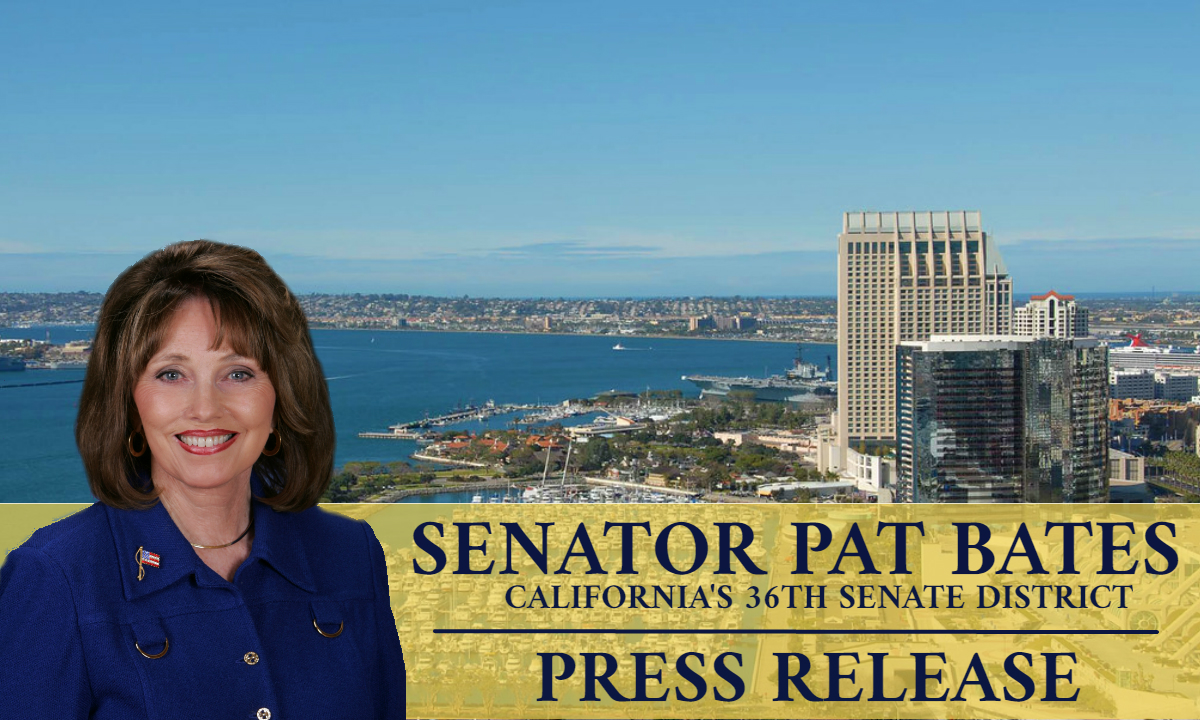SACRAMENTO – Senator Patricia Bates (R-Laguna Niguel) announced today that she has introduced “Brandon’s Law” (Senate Bill 863) to prohibit an operator of rehabilitation treatment facilities from providing any form of false advertising or marketing services. The new bill is similar to Senate Bill 589 that Governor Gavin Newsom vetoed last year.
“I’m not giving up on the fight to end abuses in the rehab industry,” said Senator Bates, a former social worker. “No patients or their families should ever have to experience what Brandon Nelson and his family did when seeking care. Patients deserve to receive truthful information from rehab operators, not deceptive sales pitches and false promises. I hope the Governor will work with me to enact a solution that will protect patients and honor Brandon’s memory.”
SB 863 would prohibit an operator of a licensed residential treatment facility or a certified alcohol or other drug program from providing any form of false advertising or marketing services, including making a false or misleading statement about the entity’s products, goods, services, or geographical locations. The bill would authorize the California Department of Health Care Services to investigate allegations of misconduct and impose sanctions.
Senator Bates authored SB 863 due in part to a comprehensive investigation by the Southern California News Group (SCNG) that found that California’s hands-off approach to regulating the industry makes it easy for dishonest operators to take advantage of vulnerable individuals. According to the SCNG, they “found that destitute and homeless addicts can be worth hundreds of thousands of dollars to unscrupulous rehab centers, where those addicts often are bought, sold and exploited for their insurance payments.”
Senator Bates named SB 863 after Brandon Nelson, who passed away in 2018 at age 26 in an unlicensed rehab home. His parents, who signed Brandon up for care at the home, were assured that he would receive therapy sessions, a case manager, a house manager, and more.
Unfortunately, that is not what he received, according to the SCNG: “Nelson didn’t have a team of professionals overseeing his transition — he apparently didn’t even get his medications on time, according to his parents and police reports. What they got were sales pitches, not health-care advice, the Nelsons concluded.”
Rose and Allen Nelson (Brandon’s parents) issued the following statement in support of SB 863: “We encourage the Legislature to pass Senator Bates’ bill on behalf of our son. He died in a treatment facility due to not having access to his prescribed medications and not receiving the medical oversight we were promised. Residential facilities should not be able to use false marketing to take advantage of the vulnerable and make huge profits off of them.”
The goal of SB 863 is to protect individuals with addiction and ensure that they are receiving the treatment that they are promised. Ultimately, the measure seeks to protect those who are at their most vulnerable and seeking treatment. Senator Bates wants marketers who knowingly and willfully make materially false statements, whether in advertising or by direct communication, with current or potential patients to be held accountable.
While the Legislature unanimously approved SB 589 last year, the Governor vetoed it because it referenced recovery residences and third parties. The new bill (SB 863) does not contain those references. Furthermore, more legislators across the political spectrum have agreed to co-author SB 863, including Assembly Members Bill Brough (R-Dana Point), Tom Daly (D-Anaheim), Cristina Garcia (D-Bell Gardens), Tom Lackey (R-Palmdale), Devon Mathis (R-Visalia), Jim Patterson (R-Fresno), Cottie Petrie-Norris (D-Laguna Beach), and Marie Waldron (R-Escondido); and Senators Brian Jones (R-Santee), Jim Nielsen (R-Tehama), and Scott Wilk (R-Santa Clarita).
SB 863 is currently awaiting referral to a Senate policy committee.




